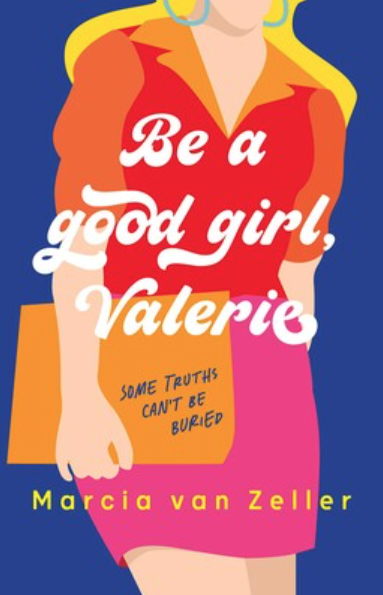Book reviews
Book reviews
Ventura Press
By on
Book title: Be a Good Girl, Valerie by Marcia van Zeller

Reviewer: Kirsten J. West
Marcia van Zeller’s Be a Good Girl, Valerie is one of the most thought-provoking fictional texts you’ll read this year.
Zeller’s protagonist Valerie is an ex-journalist in her sixties who has resigned herself to anonymity and who limits her interactions with anything beyond her computer screen. This changes when two young women appear in Valerie’s life, with two different predatory situations that require her intervention and experience to navigate. Finding her voice and her courage, Valerie becomes entwined in a sexual harassment claim that threatens not only her own crumbling career, but forces her to confront old demons that she has ignored. Her journey to justice and healing exposes the many layers of tightly wound power structures that have silenced and controlled women in the last fifty years.
Zeller’s novel does not shy away from the violence which women face in society. The text depicts graphic sexual assault and discusses rape and grooming in detail. But a book of this nature could not have been written without the explicit violence against women that it discusses at its core. It is the commentary on the acceptance of this violence, the systematic dismissal of victims and the discussion of protection of men in positions of power which makes this novel so important. It often feels more like creative-nonfiction text than a fictional novel, and this is due to the realistic portrayal of the victimisation of sexual assault survivors and the insight that Zeller provides into the media industry.
Fragmenting the timeline, the novel gradually builds a multilayered portrait of the differing threats that have shaped Valerie’s world view, from being stalked by a creep in a car in college, to the ageist treatment she receives as an older woman. These temporal shifts reveal the societal threats women have faced from the seventies through to the climate that has changed after the #MeToo movement. Zeller’s structural choice in crafting the novel in this manner is genius, creating a kaleidoscopic effect of inequity, microaggression and injustice shown amongst the growing evidence of solidarity and strength. The result is a nuanced societal commentary on the prevalence of predation that women face in their lives.
Zeller shines in her ability to portray the voice of an older protagonist with authenticity. The perspective of Valerie as a woman who has buried her past and has accepted nullifying euphemisms for her abuse is chilling and an eye-opening exploration of victims of assault. Furthermore, her characterisation moves far beyond Valerie’s lived experience. The protagonist’s resilience and growth as she bonds with the younger Anne and Grace as they pursue the sexual harassment claim creates a satisfying character arc that is optimistic and hopeful.
Zeller’s ability to create riveting characters is unfortunately also evident in the chilling and despicable predators that she conveys in excruciating detail for her readers. The powerful men of the media who prey on young hopeful journalists are all too real. The uncomfortable and often stomach-churning minutiae in these scenes makes their degenerative actions uncomfortably vivid. But discomfort is perhaps the point. Because this book is not a cosy read, but a call to action.
As the title reminds readers, Zeller wants Valerie and all generations to no longer, “Be A Good Girl.” She wants them to band together and speak out. Her message is ultimately one of courage, of resilience and of optimism for the future.
Loved reading about Be a Good Girl, Valerie? Imagine the impact of helping a child discover their first favourite book.
By supporting Booktober, you’re helping the next generation in Western Sydney and regional NSW find their voice - and maybe even write the books you’ll be reading in the future.
Donate today at booktober.org.au/donate
Or Support a Bookworm like Kirsten at booktober.org.au/users/kirsten-west
Reviewer’s bio:

Kirsten J. West is an author and an educator who has written over 20 study guides on classic literature. Her true love is fiction, and her short form pieces can be found in journals like The Quarry, Sinkhole and Literary Cocktail Magazine. Her work has featured in the Westwords anthologies Over the Line and Only I Can Say and in the Bad Western Sydney Crime Anthology the Second Case. Kirsten has a Masters in Creative Writing and often judges creative writing competitions for the RWAus and for Westwords. She is currently completing her second novel.